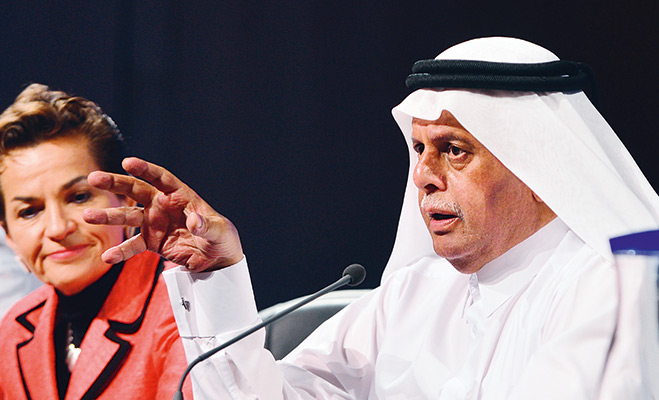No change from the latest round of climate change discussions
December’s climate-change talks in Doha disappointed many delegates, with key polluters refusing to sign up to commitments

Appropriately, the issue of hot air was the most strenuously debated matter at the Doha talks on climate change. They ended in mid-December with an agreement hastily assembled in the final hours. With the deadline already passed, chairman Abdullah bin Hamad al-Attiyah pushed through a document called Climate Gateway against widespread opposition.
The ‘hot air’ referred to the global warming that it is claimed industrial nations have created at the expense of non-industrial ones. Under the original Kyoto agreement of 1997, rich nations were given a total quota of greenhouse gas emissions, or ‘hot air’, but did not use them. With a replacement to Kyoto due to come into force in 2020 – far too late according to many climate scientists – delegates left the Qatari capital without the comprehensive solution for which they came.
So far, most global climate-change talks – such as those in Copenhagen in 2009 – have been criticised for generating their own hot air and the latest round was no exception. With a grand total of 17,000 delegates attending, including a number of protesters from various ginger groups, it did not escape the notice of sceptics that Doha has the largest carbon footprint per person in the world.
Hands in pockets
Most of the issues on the agenda immediately ran into trouble. Of the 12 days scheduled for debate, several of them were spent in deadlocked committees. A significant stumbling block was how much, if any, compensation the rich, industrialised nations would give to victim countries to repair damage from climate change and help pay for greener energy.
Although a maximum pool of $100bn was eventually agreed – more than three times the current $30bn – many of the most polluting nations withheld their signatures. The standouts included Russia, China and India. However, some experts believe donor nations will only use existing aid funds under a different name. Geographer Sam Barrett of Trinity College Dublin, an authority on climate-change justice, said: “Developed countries will promise climate compensation… because it is politically expedient.”
Another issue of massive future importance, especially to island nations threatened by rising sea levels, was targets to reduce greenhouse gas emissions. After angry exchanges, only a handful of countries signed up. They included the European Union, UK and Australia, representing just 15 per cent of total global emissions between them. Russia, China, India, Japan, Canada and US walked away from any commitments.
Running out of last chances
That leaves a 43-strong coalition of island and low-lying nations such as Fiji, the Maldives, Mauritius, Cuba and the Bahamas, which came to the talks with high hopes, highly vulnerable as they are to industrial nations’ emissions. Many experts agree, including Ed Davey, Britain’s climate change secretary, who said: “I do think we have a duty to help people who are losing their countries below the waves.”
At least, say delegates, they agreed in principle to extend Kyoto beyond this year: its official expiry date. As the only binding pact on the reduction of greenhouse gas, the agreement is considered a vital platform for global action. Richard Gledhill, climate expert with PricewaterhouseCoopers said: “With concern growing that the two-degree target [for global temperature increases] could soon be out of reach, this issue can only grow in importance.”
After 17 years of debate, Doha achieved in principle the need for a mechanism to compensate those countries that have suffered from global warming. But that’s only in principle. If a formal process is agreed by the deadline of 2015, it will have taken 20 years to get there.













